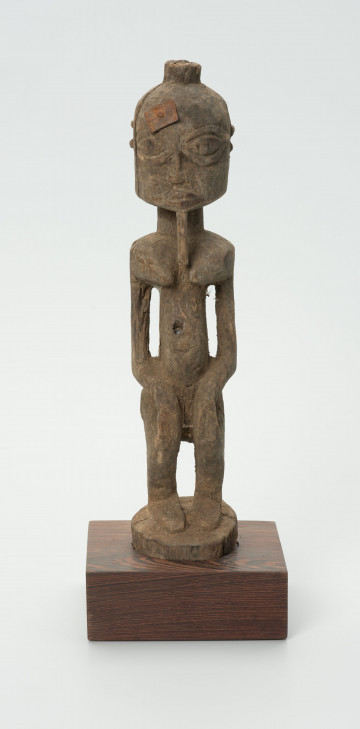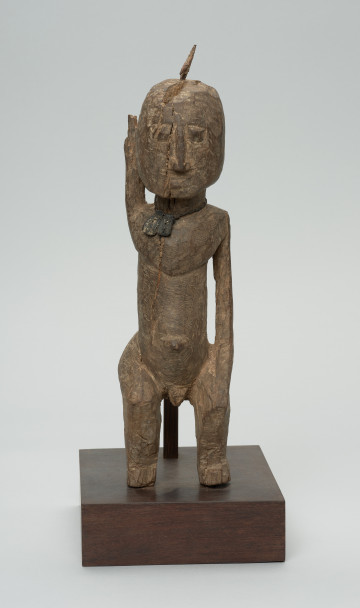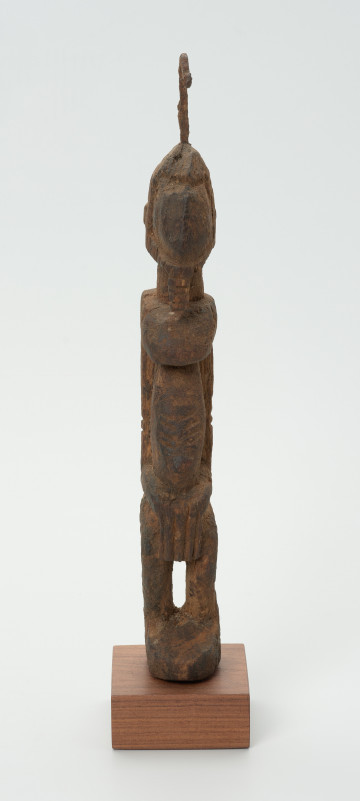
Figure - ancestor
między 1951 — 1991
National Museum in Szczecin
Part of the collection: Collection of Dogonian art
Wagem is one of the death cults in which ancestors belonging to specific families are venerated. In the Dogon, there is a strongly developed cult of ancestors. They are the source of all laws governing the society, of traditions cultivated by subsequent generations. The cult of Wagem is dedicated to both old, anonymous ancestors and those whose names are still remembered by living family members. Wagem altars are an essential part of this cult. They are found in every ginna, i.e. a house of a large family. They are most often located in small rooms on the first floor, which are entered through a terrace to make it difficult for intruders to enter. The wagem altars contain earthenware vessels representing each of the deceased men in the family, starting with the founder, whose memory is particularly important. Also placed on the altars are wooden figurines, iron objects, and wooden wagem baga ladders to help the soul of the deceased overcome obstacles. The number of objects assembled shows how many ancestors are worshipped in the family. An important element is the bundo vessel, into which water is poured with millet flour. The priest of the cult, responsible for making the offerings, is the oldest of the family - ginna bana. The sacrifices are a token of remembrance and veneration for the dead, but they are also intended to bring tangible benefits to the living. Thanks to them, the favour of the dead is won, which translates into good luck and prosperity for the whole family. During the year, many sacrifices are made on the wagem altar. The most important ones are: gyinem konyo made after the first crops are harvested in November, and wagem bulu before the start of the rainy season. The help of the ancestors is also sought before hunting, travelling, because of illness or quarrels in the family.
Ewa Prądzyńska
Author / creator
Dimensions
cały obiekt: height: 21,5 cm, width: 10 cm
Object type
figure
Creation time / dating
Creation / finding place
Identification number
Location / status

między 1951 — 1991
National Museum in Szczecin

między 1951 — 2000
National Museum in Szczecin

między 1951 — 2000
National Museum in Szczecin
DISCOVER this TOPIC
Castle Museum in Łańcut
DISCOVER this PATH
Educational path